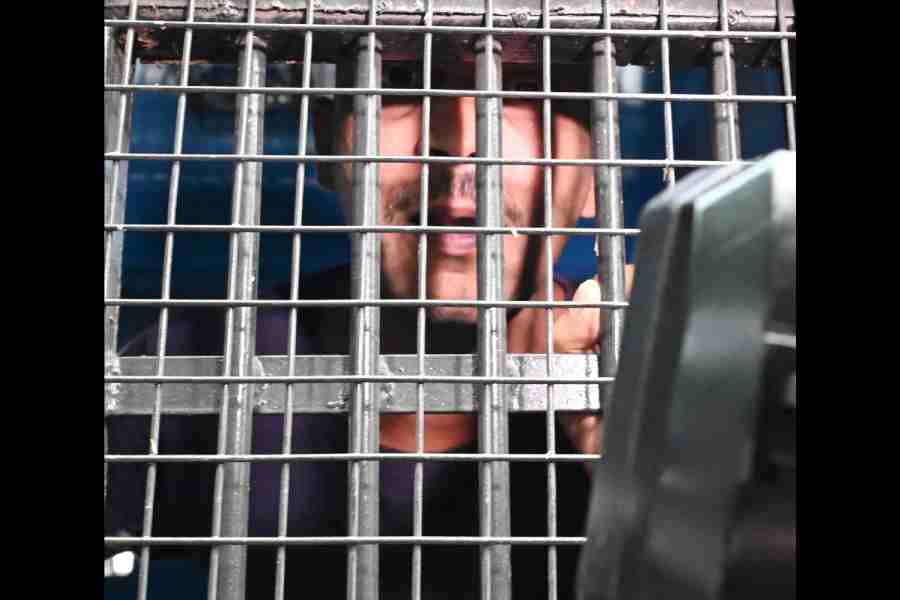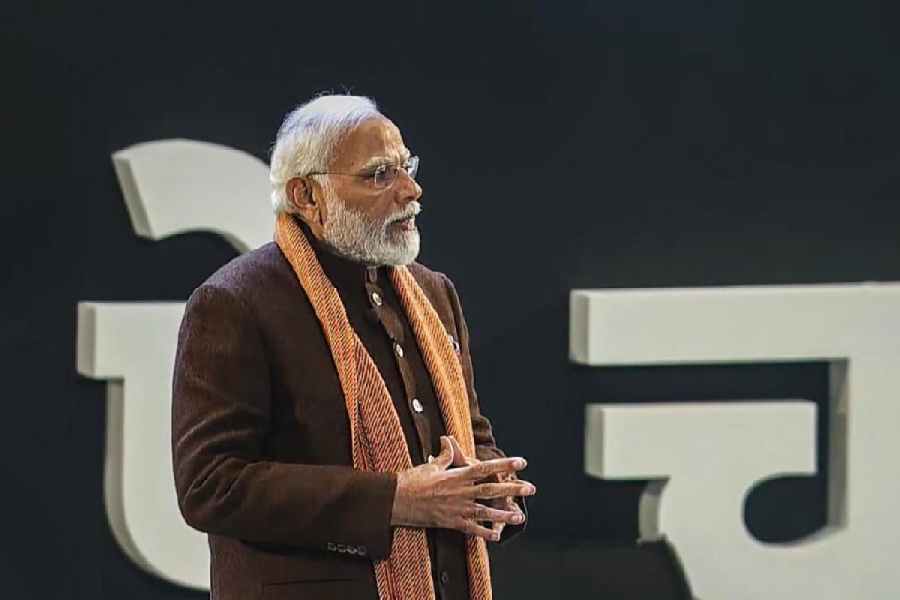The bombing of Houthi-controlled sites in Yemen by US and British ships patrolling the Red Sea is an escalation of the conflict between the US-backed Israel Defence Forces and the Palestinian population of Gaza. It’s important to frame the conflict in this way for two reasons.
First, the Western press routinely describes militias opposed to Israel, such as Hamas, Hezbollah and the Houthis, as ‘Iran-backed’ or as Iranian proxies without any equivalent descriptor being attached to Israel. This is inconsistent because Israel’s army is critically dependent on the United States of America for weapons and munitions and its State has historically relied on the US veto in the UN Security Council to work its violent will on Gaza and the West Bank.
The effect of this asymmetrical framing is to make Iran the evil genius behind the ‘Axis of Resistance’ and simultaneously deprive these militia-regimes of legitimate reasons for fighting their corners. The latitude given to nation states defending their national interest is unavailable to the Houthis because to invoke reasons of State, you first need to be a respectably recognised State.
As a first step towards a balanced discussion of the ongoing violence in the Middle East, we need to recognise that the US and its Western allies are parties to the dispute, not disinterested observers. They are on Israel’s side in the same way as Iran is on the side of the Palestinians in Gaza. They are complicit in the atrocities of the IDF in the same way as Iran is complicit in Hamas’s savagery. Since the IDF has killed ten times as many Palestinians as Hamas did Israelis on October 7, Israel’s Western sponsors, who have consistently opposed a ceasefire, have more blood on their hands than Iran does.
Secondly, it’s important to make the connection between Houthi attacks on Red Sea shipping and the Israel-Palestine conflict. The US and Britain, the two nations that conducted the bombing, have gone to some lengths to separate the two conflicts, choosing to describe their strikes as a response to unprovoked terroristic violence. But the statements of the Houthis are categorical: their violent disruption of Red Sea shipping is intended to force Western patrons of Israel to bring an end to the devastation of Gaza. The Houthi intervention in the current politics of the Red Sea is no different in principle from the presence of US and British ships there: both are shows of force intended to support the side they back in Gaza.
The US naval presence in the Red Sea is invariably described in the Western press as a force intended to stop the war in Gaza from metastasizing into a regional conflict. There’s another way of understanding its function: US warships in the Red Sea are there to create a cordon sanitaire around Israel so that the IDF can pulverise Gaza undisturbed by outrage in its neighbourhood.
The claim that the Houthis, who ideologically support the Palestinians being slaughtered in Gaza, are guilty of terror on the high seas while the US, whose warships make Gaza safe for the IDF’s slaughter, is not ought to be absurd. The reason it isn’t is that Israel’s Western sponsors double up as the ‘international community’, that arbiter of geopolitical respectability.
It is a respectability that the West’s unswerving support for Israel’s devastation of Gaza has left threadbare. As the death toll swells to ever more grotesque proportions, the fig leaf that justified the bloodshed, the end of Hamas, shrinks, leaving Israel’s Western enablers near-naked in the court of global opinion.
Thanks to the South African case against Israel at the Hague, this nakedness is no longer a metaphorical condition: it is being exhibited in real time in a real court, the International Court of Justice. South Africa has levelled a charge of genocide against Israel, arguing that Israel “means to create conditions of death” in Gaza. Israel’s Western patrons have rallied to its cause. The US and Britain have dismissed the charge of genocide as “meritless”; Germany has declared that it will intervene as a third party on Israel’s behalf at the Hague. Israel has accused South Africa of committing a blood libel and being Hamas’s representatives in court.
Israel’s supporters in the Western press have accused the African National Congress, South Africa’s ruling party, of using the genocide charge to deflect from its political unpopularity after decades in office. It’s worth addressing this allegation because it speaks to a more general issue: the credentials and motives of Israel’s critics and defenders.
Iran is a fanatical, mullah-run theocracy; Hezbollah, the Houthis and Hamas are armed, authoritarian Islamist entities that run enclaves rather than nation states. South Africa is a pluralist, multi-racial democracy mired in corruption. On the other side, we have Israel, a Zionist State, designed as a democracy for its Jewish citizens, that discriminates systematically against its Arab citizens and violently subjects Palestinians in the occupied West Bank to land theft, displacement, apartheid and murder. Israel’s principal allies, the US and Britain, are robust democracies whose interventions in West Asia and the Middle East since the Second World War are a catalogue of ruin and destruction.
The case at the Hague will be judged, as it should be, on the merits of South Africa’s arguments and the strength of Israel’s defence, without reference to the inherent political virtues or vices of the two sides. The court will issue an interim ruling inside a month of the current hearing’s conclusion. It is extremely difficult to make a case for genocide even in a context of mass killing, as in Gaza, because the judgment turns on intent: was genocide the formal policy of the perpetrator?
While pointing out that the agents of an ongoing genocide are unlikely to call it by its name, South Africa’s lawyers have compiled a list of genocidal statements made by Israel’s political rulers, including its president, its prime minister, its ministers for defence and infrastructure, members of the Knesset, and senior generals. More seriously, they have shown that these calls to erase Gaza were echoed by soldiers on the ground, that Netanyahu’s call to Israeli troops to remember Amalek, the “… biblical command by God to Saul for the retaliatory destruction of an entire group of people” was echoed by IDF soldiers chanting (on film) “wipe off the seed of Amalek”.
To get the court to issue interim orders, South Africa’s arguments and evidence will have to persuade the court that the charge of genocide is at least plausible. It may not succeed because that judgment will turn on intent. But even if it fails, the South African team will have assembled a formidable roster of Israel’s atrocities and potential war crimes, including ethnic cleansing. It will, more importantly, force Israel’s Western allies to publicly defend this gruesome record, one that has led Gaza to the brink of famine and extinction.
It’s unlikely that the obscuring rhetoric of a rules-based order will survive this naked complicity. The last time the UN General Assembly voted on Gaza, 153 out of 193 members voted for a ceasefire. The US was supported by all of 13 countries: Austria, Croatia, Czechia, Fiji, Guatemala, Hungary, Israel, Marshall Islands, Micronesia, Nauru, Papua New Guinea, Paraguay and Tonga. There is no coming back from Gaza. The US might remain the pre-eminent political power in the world but it will never again be its hegemon.
mukulkesavan@hotmail.com











